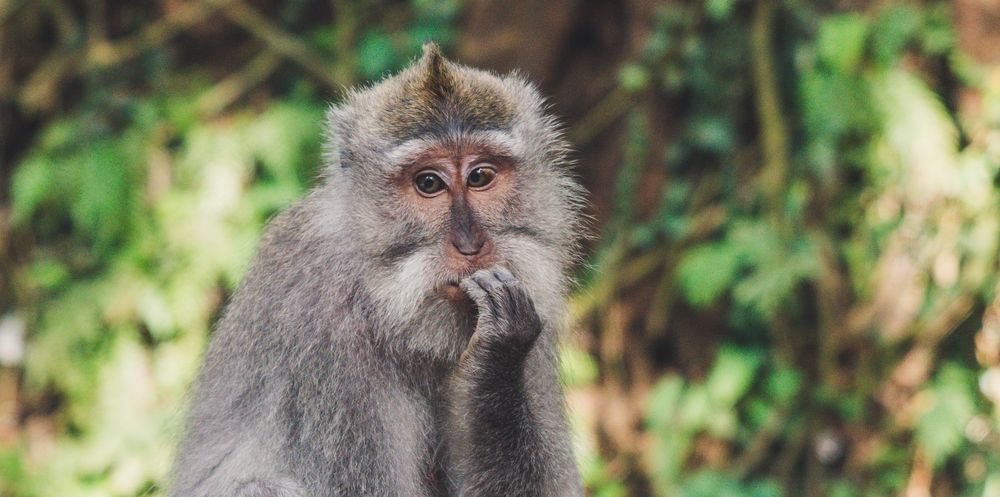I am a fraud. An impostor. My entire career – my whole life really – has been built on lies and deception.
I’ve misrepresented myself. I’ve lifted other peoples thoughts and passed them off as my own. I’ve portrayed an air of public confidence while hiding crippling internal shame. I know deep down I don’t deserve the recognition and success I’ve been given.
To be blunt: I am not who you think I am.
But is anyone, really, who you think they are?
Or are we all impostors, doing our best to play the part of who we ought to be?
If you’re a founder, a creator, or really any kind of human, you’re probably familiar with impostor syndrome.
Estimates indicate that 70% of people experience impostor syndrome at some point in their lives.
Symptoms include an inability to take credit for success and ability, fear of being "found out", and agonizing self-doubt.
Even after reaching the top of their field, many well known figures report continued feelings of being a fraud.
Pulitzer Prize-winning poet Maya Angelou had this to say about her self-doubts:
"I have written 11 books but each time I think ‘Uh-oh, they’re going to find out now. I’ve run a game on everybody, and they’re going to find me out.’"
Legendary novelist John Steinbeck shared similar anxieties:
"I am not a writer. I’ve been fooling myself and other people."
If top performers never escape impostor syndrome, what does that mean for the rest of us?
We can let these feelings eat away at our thoughts and limit our potential. Or we can realize that we're all in it together.
One way or another, we’re all winging it.
My experience with impostor syndrome
My feelings of being an impostor have never gone away. I’ve learned to quiet them. I've developed strategies to counter them. I've given myself mantras to repeat to them.
Still, the internal doubts return when I’m going on stage to speak at a conference. Or raising my voice to make a point at an executive meeting. Or reading through criticism of my work online.
I can trace my beginnings of impostor syndrome to my earliest time as a founder. I founded Bleacher Report when I was 22 years old. This was 2005. Facebook was still a curiosity and the cult of the young founder wasn't a thing yet.
In those days, I learned to leverage my impostor status as an advantage. Early on, I set a goal to build relationships with established sports media companies. At my age and experience level, I felt out of place in every room. I soon realized that being such an obvious fish out of water could work in my favor. My youth and inexperience lowered expectations. By exceeding that low bar, I could punch above my weight class.
I recall a particular meeting with the top executives at CBS Sports. On one side of the table, the CBS contingent sat in their business casual attire. They seemed very much to me like real adults who had it all figured out. On the other side, I sat with my shaggy haircut and clothes that didn't quite fit right. I was there to pitch them on a scrappy sports startup that was making things up as we went along.
I did my best to hold my own. I believed deep down – convinced that they knew as well – that I didn't belong there. But I brokered the meeting. They showed up. Whether they took me seriously or not, I focused on doing business. I left the meeting with a deal to distribute Bleacher Report content on CBSSports.com. At the time, it was a coup for establishing the legitimacy of our brand.
A couple of years later, one of those execs – Rich Calacci – joined Bleacher Report as our first Chief Revenue Officer. Was he in on the deception? More likely he knew by that point in his career that nobody has it all figured out. We're all making things up as we go. And that he'd rather cast his lot with some scrappy upstarts figuring things out in a new way.
Within a few years time, Bleacher Report blew up. We launched from obscurity to the stratosphere. After years of improvising, I reached the peak of startup success when we sold out to Turner Sports.
So what happened to my feelings of impostor syndrome when I went from "fake it till you make it" to actually making it?
Did that all fade away as I achieved the goal all founders aspire to?
Far from it. In fact, my impostor syndrome grew more acute. When I walked into any room, the people on the other side of the table no longer saw a green, young founder of an unproven business. Instead, they saw Dave Nemetz: experienced founder of Bleacher Report, a digital media success story.
The tables had turned. Before, I could come out ahead just by exceeding a low bar of expectations. Now, I felt like everyone expected for me to have all the answers. The bar had been raised. That left even more room for self-doubts to creep in. I grew hyperaware of what others thought of me. I agonized over whether or not I projected the image of a successful founder.
As the insecurities grew, I fell back on a familiar friend: self-deprecation. I've always leaned on my sense of humor to get through awkward situations. This was no different. I believed I could kill two birds with one stone. By being self-deprecating, I could lower the bar of expectations. And by showing humility, I'd prove that I hadn't let success go to my head.
But this approach cuts both ways. I thought I could fight my impostor syndrome by taking myself down a few pegs. Instead, I gave it strength. With humor and humility, I denied my own success. I hoped to convince others – and ultimately myself – that I wasn't all that impressive. To not get the wrong idea that I was someone I wasn't.
For years, even after I founded my second company, I let this mindset cloud my thinking. Better to keep the bar low where I knew I could clear it than set it too high and expose myself as a sham. I even resisted writing publicly – like I'm doing now – because of the doubts I felt.
I'd tell myself:
"No one wants to hear what I have to say. I don't want to be one of 'those guys' who puts themself out there only to get torn down. I'd rather keep my head down and avoid the potential blowback."
Since I recently started writing, the flaws in this thinking grew evident. I've received overwhelming support and appreciation. From peers, from people I look up to, and – crucially – from other founders and creators who have faced similar situations.
Sure, some have disagreed with things I've written. But that has sparked healthy debate and new ways of thinking. I'm sure there are haters out there. But who has time to worry about them? Life's too short.
Overcoming impostor syndrome
So what changed?
How did I overcome impostor syndrome? How did I let down the shields of humor and humility to expose my true authentic self? How did I embrace and own my successes while becoming comfortable with what I haven't figured out?
Selling my second company, Inverse, played a big part in that. For years after Bleacher Report, I had a chip on my shoulder to prove that it wasn't a fluke. Inverse was my chance to show I could repeat the success. This time, on my own. I'm incredibly proud of Inverse in so many ways. But the company never achieved the business success or high profile exit that Bleacher Report did.
[Note: I'll be writing a post-mortem on learnings from Inverse in a future essay. Subscribe here to make sure you don't miss it.]
So what happened in the aftermath of Inverse's underwhelming exit? Did the curtain pull back to reveal the fraud I've always been? Was my career and life built on lies laid bare?
Hardly. Investors reached out to express support and interest in backing future efforts. Founders and peers still came to me for advice. I've eaten many great sandwiches. The world kept turning.
I've found the best way to fight impostor syndrome is to be who I am.
To own my successes. And my shortcomings. To not worry about where the bar of expectations is set. To stop obsessing over what other people think of me. The reality is: everyone else is too preoccupied with their own invisible bar of expectations to worry too much about yours.
Impostor syndrome lurks always. It rears its head every time I get ready to speak up in a room, or post a Tweet, or publish a new essay. But I overcome it now by focusing on a different bar. A bar I set for myself and only me. If I truly believe in what I'm doing, I don't hesitate. Once I put it out there, what others take from it is up to them.
The real fraud is not being your authentic self.
Still with me? If you enjoyed this post, follow me on Twitter here.
Or subscribe below to get my essays via email.



